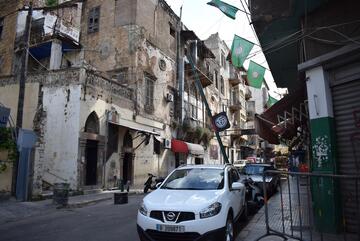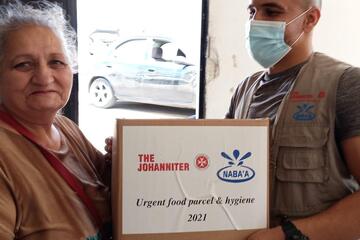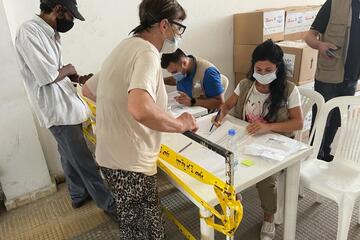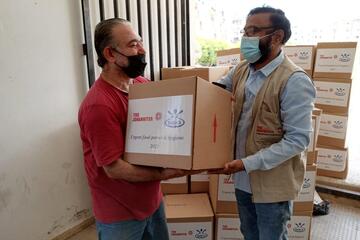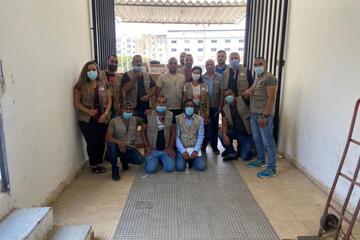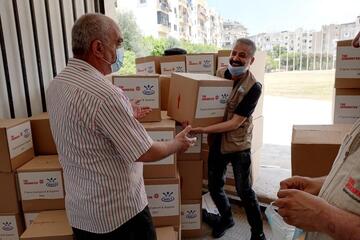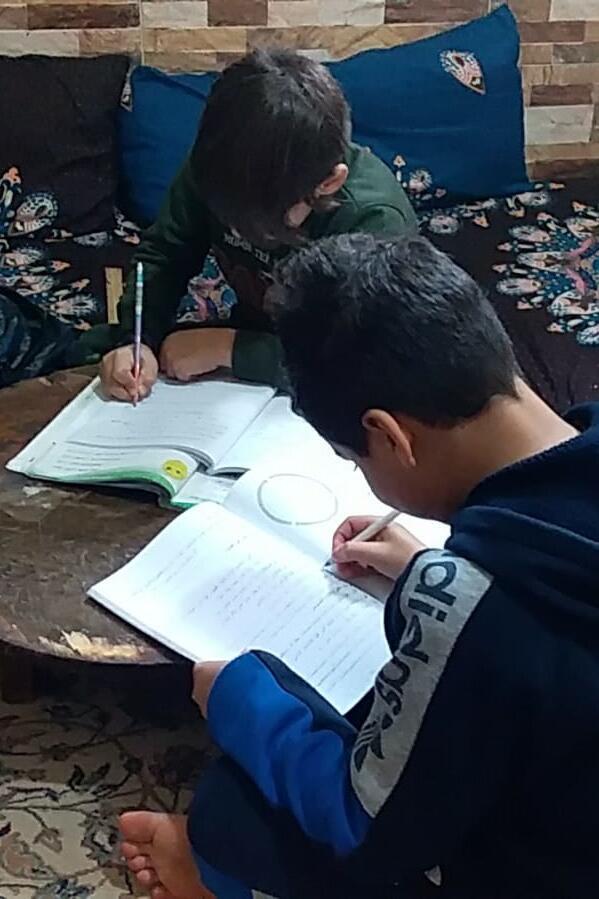Lebanon: Help against an approaching collapse
Berlin / Beirut, 02 August 2021
The enormous explosion in the port of Beirut on 4 August 2020 and the Coronavirus pandemic have made the country's difficult social and economic situation visible. More than 50 percent of the Lebanese population now lives below the poverty line, many of them even in extreme poverty. The Lebanese lira continues to lose value every day.
Due to this economic crisis, many have lost their jobs and those employed are not paid regularly their salaries, which is why unemployment rate has risen enormously. Basic things like food, fuel and medical care are hardly affordable anymore with inflation in the triple digits. For example, a kilo of rice still cost 8,000 liras in May, now it costs almost double: 17,000 liras, the equivalent of about 9.50 euros. The consequences for the people in the country are enormous.
Many families are already suffering from hunger and malnutrition. In their distress, many are adapting negative coping strategies: children are taken out of school to work, or younger girls to be married off.
Food aid for almost 2000 families
The economic situation is particularly devastating for Syrian and Palestinian refugees in the country. Therefore, Johanniter provides food assistance through cash/voucher programming to prevent refugees and vulnerable families in adapting negative coping strategies from this shock of economic crisis coupled with COVID-19 and Beirut blast. Due to the current acute situation, this aid is now being extended to another 1928 families. "Lebanon needs further support to avoid a total collapse," says Raghavan.
No money for medical examination
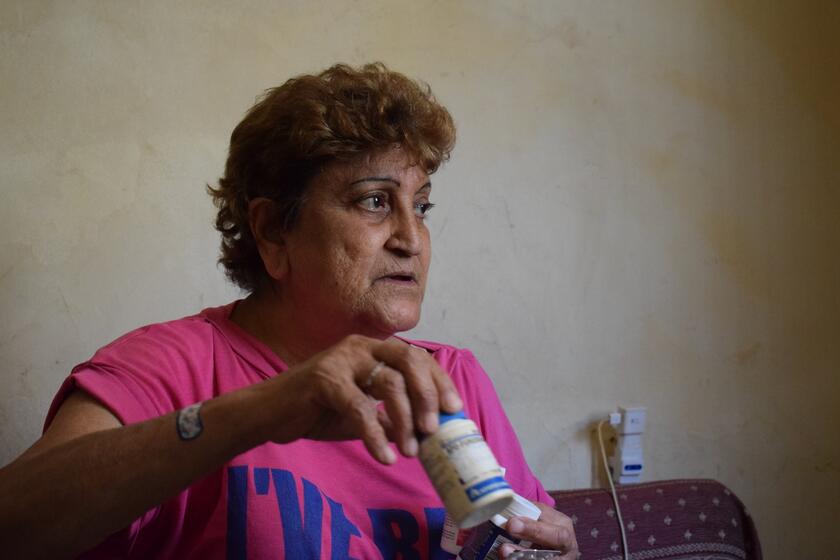
Jean Darc used to work as a seamstress, but due to eye problems she is unemployed and unable to meet her basic daily needs. Her nephew supports her with medication and rent. She cannot afford important medical examinations. Yet Jean Darc urgently needs an MRI and a biopsy of her lungs to investigate persistent swelling. She takes a number of medications, including for heart, diabetes, stomach, nervous system and cholesterol. Although her body desperately needs healthy meals and vitamins, she cannot afford healthy foods and eats only what is available: rice, beans and lentils.
The explosion hit her house in Beirut, causing damage to the windows and roof. As a vulnerable person, she has been supported with food and cash assistance through Naba'a, which Jean Darc greatly appreciates. Her worries have nonetheless remained. In addition to her health, she fears eviction from the house by the owner, who expects more rent due to the economic crisis that affects everyone.
No more purchasing power due to inflation
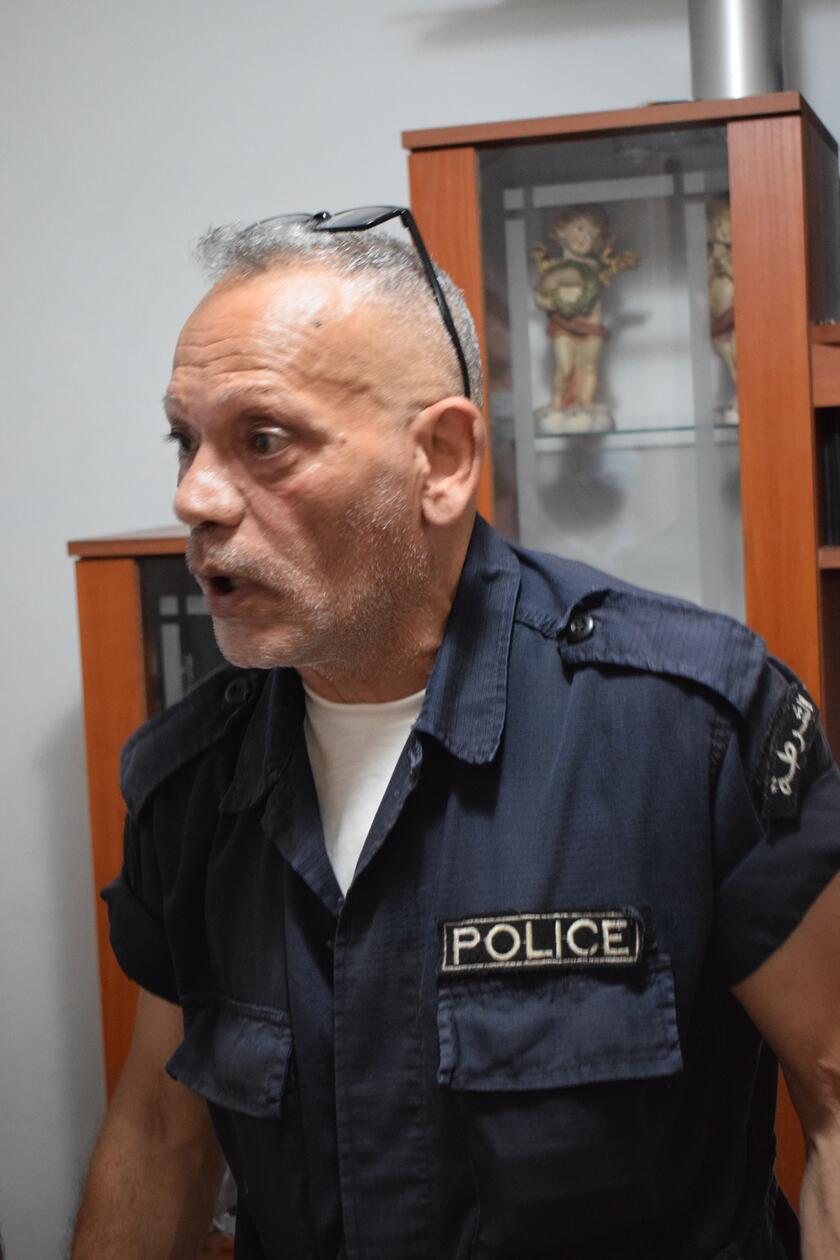
59-year-old Suleiman Mohammad Gharib lives in Beirut's Bourj Hammoud neighborhood, which was hit hard by the blast. As a police officer, he used to earn a little over a million Lebanese lira, which was a decent amount a few years ago. With the continued decline in the value of the Lebanese lira, the salary has long been insufficient to meet the needs of his family of three. One-third of his income goes for rent, and the remaining amount is no longer enough to cover expenses. He had to take his daughter out of school because he could no longer afford the fees. The explosion had severely damaged the family's house. As part of the assistance project, Suleiman received 215 US dollars to finance the repair of the window panes and two doors of the house. He did some of the work himself and was able to save something for when the crisis hit instead of paying painters and laborers.
Hardly any jobs for refugees
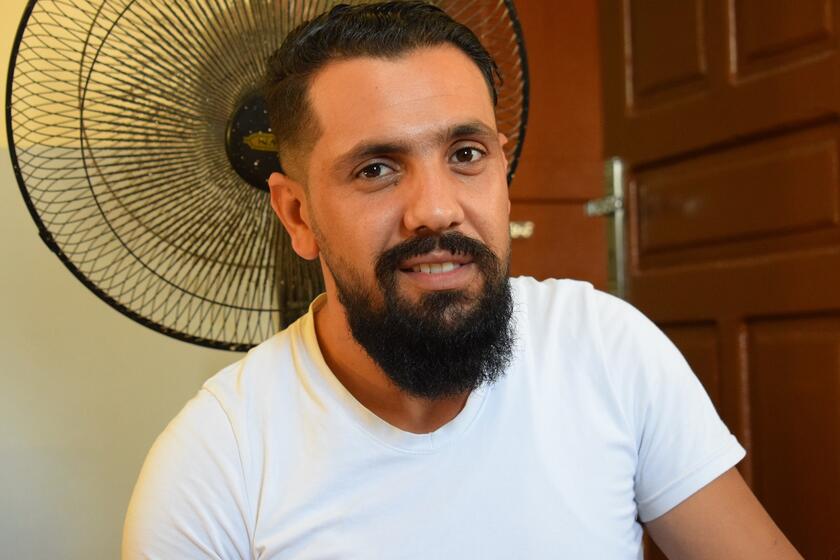
Zaiter Ibrahim Al Hussain fled Syria and also lives in Burj Hammoud with his wife and two daughters. He moved to the Beirut neighborhood because he considers it safer and is accepted there by the neighborhood, which consists mainly of migrants and refugees from different countries. Because of the flight, Zaiter dropped out of his studies. Finding a job is very difficult. He has registered with the UNHCR, but he receives no support. By necessity, he works at the nearby Christian cemetery, where he buries the dead. "In recent months, there have been many funerals due to COVID-19, and I usually get a call when I need to dig the graves and conduct the funerals, including the service," Zaiter says. Payment for his service is voluntary, he says.
Zaiter's biggest concern is that there are no job opportunities for Syrians and soon he won't be able to pay the rent. So far, they have not been threatened by the locals if they worked as day laborers or provided some services. But the situation is getting worse every day. Naba'a assisted the family in renovating the ceiling beams and columns, and new doors and windows were also installed. Now that the apartment is renovated and looks good, Zaiter fears that the owner might raise the rent and ask them to leave the house.
What we do against Corona worldwide
We are adapting our current project activities to respond to the worldwide corona pandemic.
